Description
ABSTRACT
An Assessment of the Arbitral Legislative Frameworks in Sub-Saharan Africa: Nigeria in Perspective
Monday Chinaecherem*
The Arbitration and Conciliation Act, CAP A18 Laws of the Federation (ACA), is Nigeria’s primary and essential legislation applying to institutional and ad-hoc arbitration. The administration of justice through regular court proceedings is usually beleaguered with distressful delays in proceedings, overwhelming litigation costs, loss of pre-existing relationships between parties, incessant court adjournments, and endless eventualities. An attempt to combat these fatal quandaries and ensure a swifter dispensation of justice has seen the emergence of arbitration in its practical use in Nigeria, more inclusive of other sub-Saharan African countries. The need for arbitration arises from its potential to propose a more efficient, specialised, and enforceable means of resolving disputes, particularly in commercial and international transactions. It gives parties greater control over the dispute resolution process and can contribute to a more favourable business environment by promoting fairness, confidentiality, and efficiency. Arbitration is not orphaned of certain drawbacks; the validity of arbitration agreement, arbitrability, award enforcement, absence of appellate mechanism, issues relating to the legitimacy of international arbitration, and many other unwavering obstacles are ceaselessly impeding the feats of arbitration. Without a doubt, there is a pressing need to chart a new course toward strengthening the legislative framework for institutional arbitration in Nigeria and sub-Saharan Africa. Thus, whilst exploring and scrutinising sustainable recommendations for the way forward, this article examines the legal frameworks for the institutionalisation of arbitration in niceties in Nigeria and other sub-Saharan African countries.
Keywords: Arbitrability, Arbitration and Conciliation Act, legal frameworks, institutional arbitration, sub-Saharan African countries.
INTRODUCTION
Disputes are inevitable in every facet of life; they permeate society- from small-scale domestic altercations to everyday conflicts and more pressing disagreements between private individuals, corporate bodies, and state parties.1 Hence, there is a need for an appropriate recourse for settlement. Arbitration is a means of achieving mutually acceptable solutions to disputes between parties without an option for litigation. This form of dispute resolution daunts a degeneration of an adversarial culture in attaining civil justice
* LL.B (Hons); BL
- AAOkharedia, ‘The Emergence of Alternative Dispute Resolution in South Africa: A Lesson for Other African Countries’ (A Paper Presented at the 6th IRA African Regional Congress of Industrial Relations, Lagos Nigeria, January 2011) accessed 22 September 2023

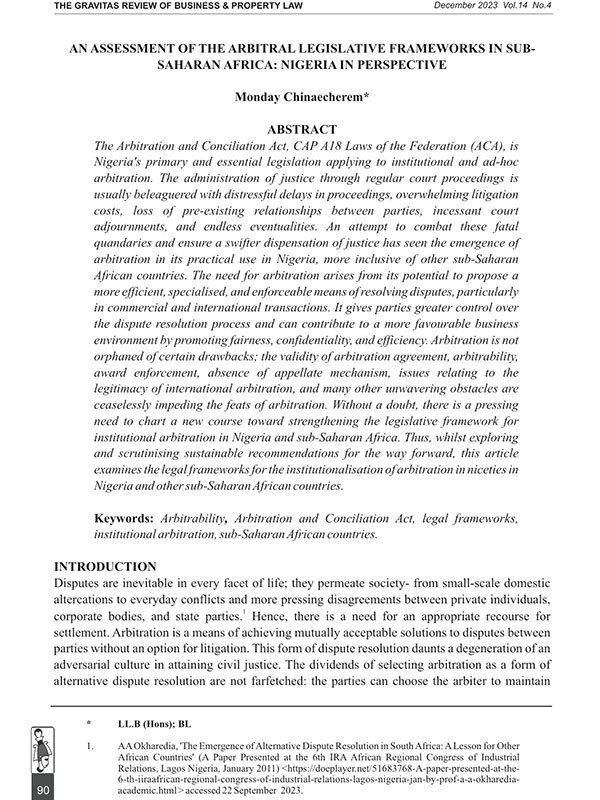
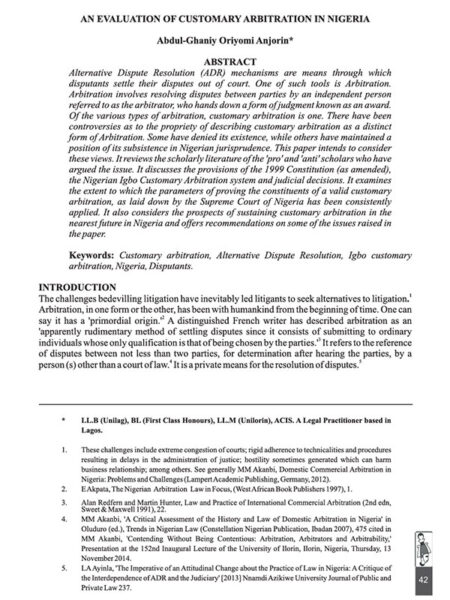
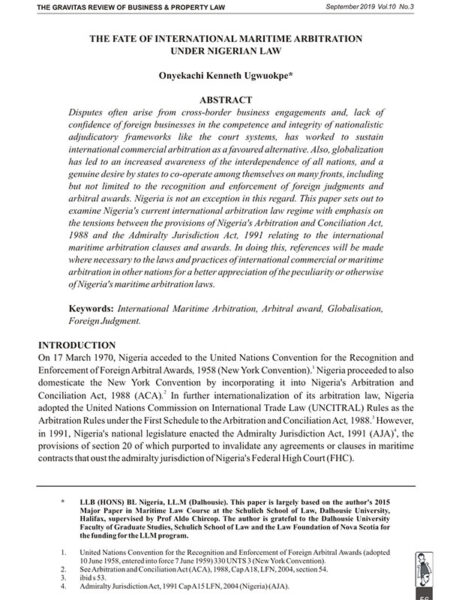
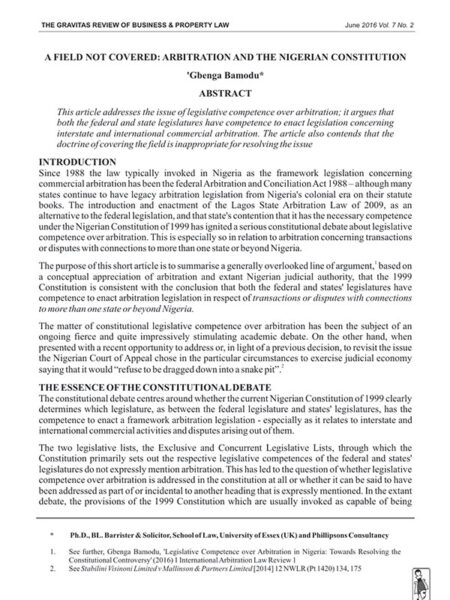
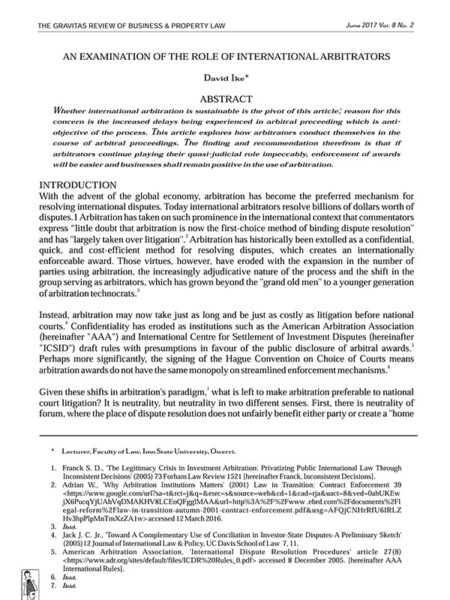


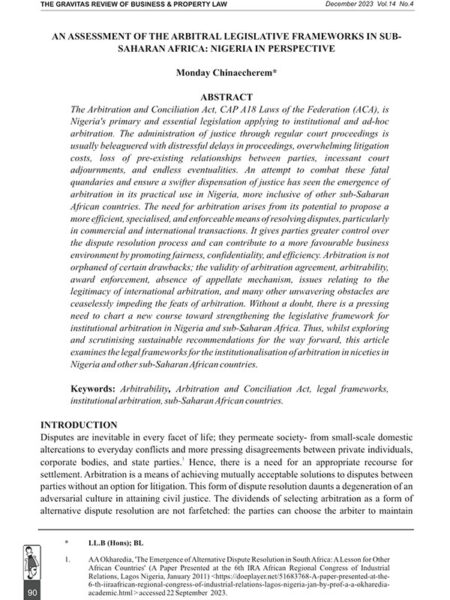
Reviews
There are no reviews yet.